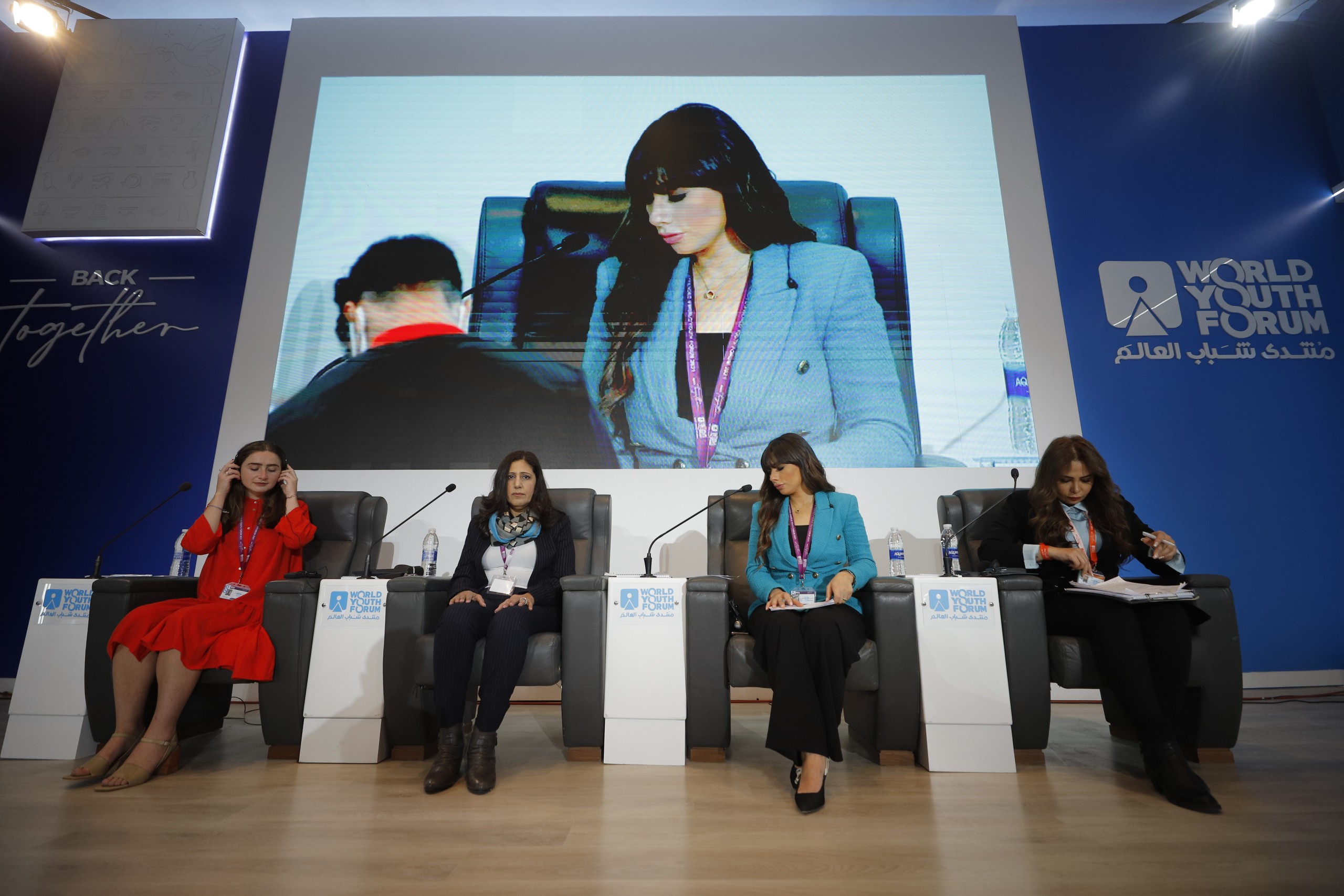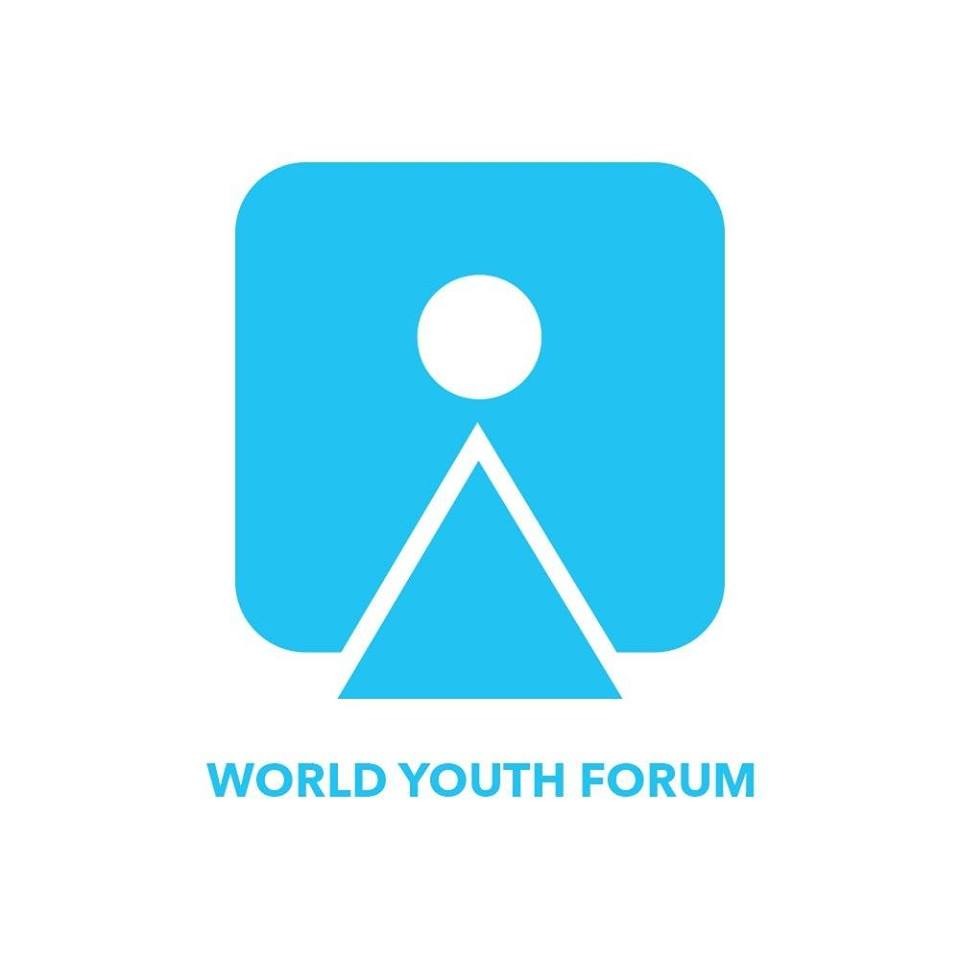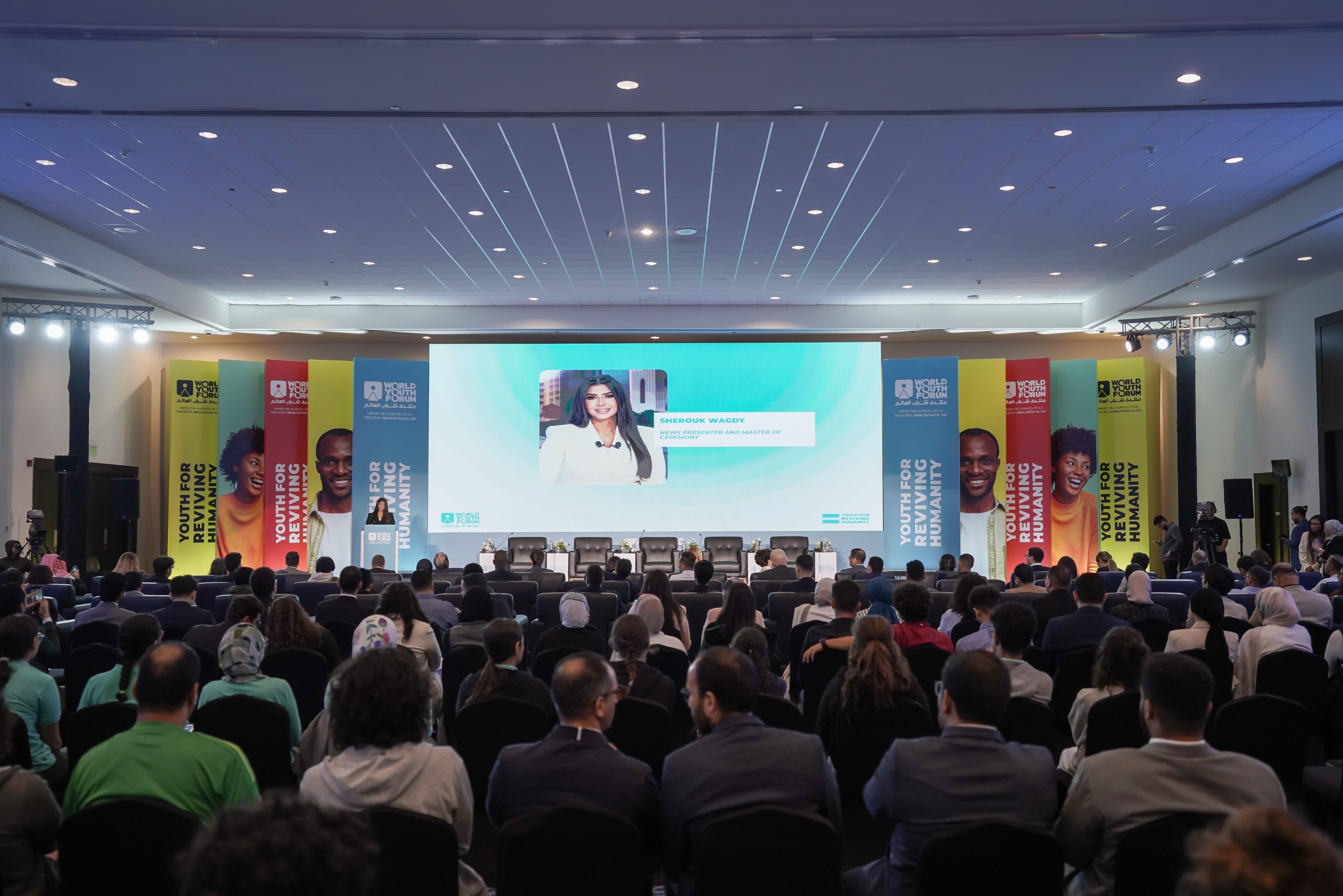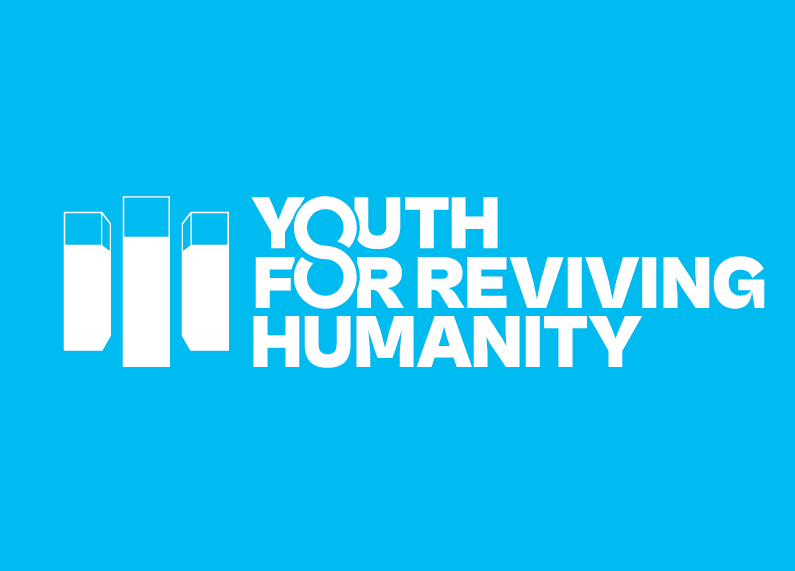Share

During the activities of the second day of the fourth edition of the forum, in the presence of President Abdel Fattah El-Sisi, President of the Republic, a Model of the United Nations Human Rights Council was held, in accordance with Egypt’s desire to consolidate a culture of human rights, and in an effort to develop the rules of international human rights law, as Egypt joined eight human rights conventions, in addition to providing technical support in human rights cases. Egypt has also adopted a comprehensive approach to adopting the national human rights strategy.
The session began its work by emphasizing that the Universal Declaration of Human Rights in 1948 was born from the womb of the Second World War, and it was a common framework for humanity, and it is from the womb of tragedy that a lifeline is born.
The Chair of the session announced his sincere condolences and sympathy on the death of the President of the European Parliament, stressing the need to adhere to the international legal framework that is required to deliver speeches.
The United Nations High Commissioner for Human Rights highlighted the impact of the Coronavirus pandemic on the process of cooperation and bridge-building, and stressed that developing countries are more affected by the pandemic, stressing that the crisis is deep and compounded by discrimination in vaccines, but that civil and political rights should be respected in the face of the pandemic. He called that it is time for unconditional access to health services, the first weapon of battle is the vaccine, and the High Commissioner stressed that national efforts must limit the impact of the pandemic on vulnerable groups such as women, children, refugees and the elderly, in addition to the need to protect health workers, as well as work on integrating human rights into the various UN cases to ensure that recovery is our destination with the 2030 Agenda as the most powerful tool.
The President of the Human Rights Council gave the floor to representatives of groups within the Council, which indicated the diversity of procedures after the pandemic, as well as discrimination in the distribution of vaccines, and the injustice that Africa has been subjected to in accessing vaccines.
The first speech of the representative of the State of Tunisia, representing the African Group, came as his speech made it clear that African countries have the ability to confront epidemics, but discrimination in vaccines results in a disaster, and the Organization of Islamic Cooperation – represented in Pakistan – indicated its efforts to contain the effects of the pandemic, stressing the need for coordination with Other international bodies believing in human rights.
The speech of the Portuguese delegation on behalf of the European Union emphasized that the Union’s agreements promote human rights, so the Union extended a helping hand with many vaccines to other European countries through the “Cofax” initiative. No country will be healthy; Unless vaccines are made available to all and equitably.
Then came the word Venezuela, representing the Latin group, in which he expressed the discrimination that is happening in the distribution of vaccines, as countries in the south lack basic rights. The speech of China – the representative of developing countries – demanded from the council to appoint a rapporteur and a working group with a view to securing vaccines for the developing countries.
The chair of the session moved to give the floor to the member states and then the observers, so Botswana’s speech came, stressing that it was affected by the pandemic in education. As for Ethiopia’s speech, it stressed the importance of cooperation and full commitment to human rights, and Kyrgyzstan’s speech mentioned the impact of the pandemic on increasing rates of domestic violence.
Kenya, Rwanda, Pakistan, Togo, Indonesia and Burundi added their voices to the importance of cooperation in confronting the pandemic to protect the economic, social and cultural sectors.
The words of Sudan and Côte d’Ivoire demanded to fight everything that hinders access to vaccines, provided that the concept of health care for the population be replaced by the concept of health care for the population. Brazil’s speech urged that “Cofax” open the door for everyone to provide vaccines without discrimination.
The words of Ecuador, Paraguay and Greece stressed that the Coronavirus pandemic is not only a health crisis, but also an economic one. Therefore, cooperation and coordination in various fields is required.
The words of Georgia, Bolivia, Austria, Panama, Venezuela, Lithuania and Switzerland shed light on that the pandemic has highlighted the flaws of the international system including fair vaccines distribution, peace, prosperity and development as main axes in an integrated system of international human rights.
Egypt’s speech clarified the application of the equation of maintaining health, walking the path of development and employment, and not being in complete lockdown, and the Egyptian state demonstrated the strengthening of political rights through the electoral benefits of the House and Senate, while the speeches of India, Jordan, Albania, the Philippines, Croatia, Japan and Mongolia called for the distribution of vaccines based on the number of the population and not the construction of vaccines. on nationality.
The words of Qatar, the UAE, Cuba, the representative of the Mediterranean Alliance, Saudi Arabia and Belgium stressed the importance of protecting citizens, providing the necessary support, and following the guidelines for the protection of human rights.
It is worth noting that direct criticism was directed at Egypt in the speech of a representative of a non-governmental organization accused of violence against women, enforced disappearance and a violation of the basic rights of Egyptians, which prompted the representative of Egypt to request the right of reply from the session chair to give him the latter, and the representative of Egypt objectively refutes all that Came from bogus accusations do not even rise to the discussion.
In an intervention by President Abdel Fattah El-Sisi, President of the Egyptian Republic, he highlighted human rights in an integrated manner, praised the organization of human rights simulation, and focused on the comparison between victims of destruction in the surrounding countries and victims of human rights. The President called for adopting recommendations in the resolution that criminalize those who interfere in the internal affairs of countries, and impose their will in a way that harms and afflicts human rights.
Ambassador Moushira Khattab stated that Egypt is keen on human rights from an intellectual perspective as beliefs that we practice because diversity and difference are universal, whether in form or culture.
STAY IN THE LOOP





